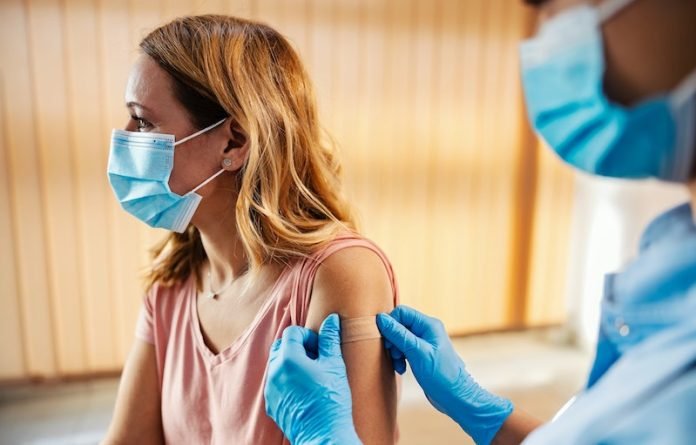
In a study from SAHMRI and Flinders University, scientists found fundamental differences in how the AstraZeneca and Pfizer COVID-19 vaccines impact the immune system.
They tracked the immune responses of 102 adults of varying ages. These people all lived in South Australia where there was no community transmission of COVID-19 at the time.
Participants had their blood taken immediately after each dose of either the Oxford/AstraZeneca or Pfizer/BioNTech COVID-19 vaccines to assess early immune response.
They were also tested 28 days after every immunization to evaluate B and T cell activity. Both are critical, as B cells produce antibodies and T cells kill infected cells.
The team found the vaccines are alike in the sense that they induce the immune system to recognize and protect against the COVID-19 virus, but they differ in how this is achieved.
The Pfizer vaccine uses mRNA technology to induce host cells to produce the SARS-CoV-2 Spike protein, while the AstraZeneca vaccine uses a harmless virus (a chimpanzee adenovirus) to encode the Spike protein.
The team used a method of biological analysis known as ‘multiomics’ to examine immune responses in many different ways in thousands of blood samples.
After the first dose, they were surprised to find the Oxford/AstraZeneca vaccine elicits an unexpected memory-like response in the immune system, recognizing the vaccine as if it’s something it’s seen before.
This response is targeted against the adenovirus vector in the vaccine, not the Spike protein and the intensity of this response correlates with the expression of proteins that act as a precursor to thrombosis, or blood clotting.
The study also found those who’d only had two doses of the Oxford/AstraZeneca vaccine generally produced lower amounts of antibodies and less of a specialized type of T-cell that helps with antibody production; compared to those who had two doses of the Pfizer/BioNTech vaccine.
However, this was rectified once they had their third booster dose of an mRNA vaccine, illustrating the importance of booster doses.
The study added evidence to the notion that COVID-19 vaccines offer some people more effective protection than others.
The reasons for this variability are not well understood, but the team says age is a factor, with older people generally having a lower immune response after two doses.
Fortunately, a third booster dose was highly effective at overcoming this.
A further surprise to researchers was the finding that feeling unwell after a vaccine dose may in fact be linked to its effectiveness.
Overall, this project has provided important new insights into the early immune responses to these vaccines and offers a greater understanding of how they work to protect against COVID-19.
If you care about COVID, please read studies about Vitamin D deficiency linked to severe COVID-19, and low-sodium plant-based diets may prevent COVID-19 better.
For more information about COVID, please see recent studies about new evidence on rare blood clots after COVID-19 vaccination, and results showing zinc could help reduce COVID-19 infection risk.
The study was conducted by Professor David Lynn et al and published in Cell Reports Medicine.
Copyright © 2023 Knowridge Science Report. All rights reserved.



